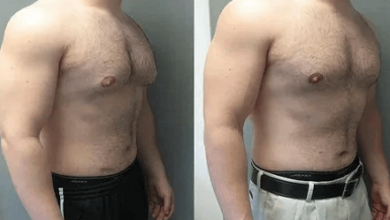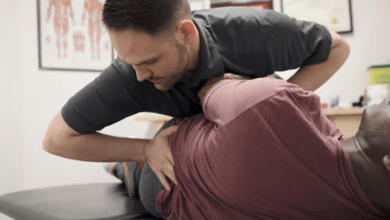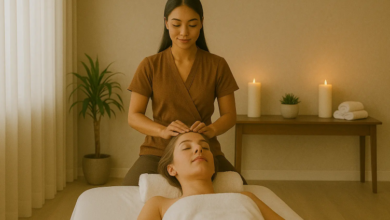Marriage Therapist Near Me Effective Support for Couples Seeking Help

Finding a marriage therapist near me means accessing professional support that focuses on improving communication, resolving conflicts, and strengthening your relationship. A qualified marriage therapist provides concrete strategies tailored to both partners, helping them navigate challenges and rebuild connection.
Many therapists specialize in couple counseling, bringing experience with various relationship issues, from communication breakdowns to trust concerns. With services available across regions, including major areas like Ontario and Alberta, couples can find experienced professionals nearby who understand their unique needs.
Seeking local marriage counseling often makes therapy more convenient and consistent, increasing the chances of positive outcomes. The right therapist helps couples develop skills to manage future difficulties, not just resolve current ones, making ongoing growth possible.
Choosing a Marriage Therapist Near Me
Finding the right marriage therapist involves evaluating practical factors, recognizing the advantages of local support, and using effective search methods. Each step ensures the chosen professional can meet specific needs and is accessible when required.
Factors to Consider When Selecting a Local Marriage Therapist
It is important to assess qualifications, experience, and specialization when selecting a therapist. A licensed professional with training in couples therapy and conflict resolution is preferable.
Consider if the therapist has experience with particular relationship dynamics, such as same-sex couples or blended families, depending on your needs.
Location matters for convenience and reducing stress. Proximity helps maintain consistent attendance and allows for easier scheduling around daily commitments.
Check client reviews or ask for referrals to gauge reliability and effectiveness. Compatibility with the therapist’s style and approach can significantly impact the therapy’s success.
Benefits of Working With Nearby Counselors
Choosing a nearby marriage therapist simplifies attending sessions without long commutes. This convenience often leads to better consistency and commitment to therapy.
Local therapists are usually more familiar with community resources, which can be helpful for issues extending beyond counseling, such as legal or social support.
Having face-to-face access during emotional moments helps build trust faster and provides immediate support when needed.
In emergencies or critical discussions, seeing a counselor locally can be more reassuring than remote sessions.
See also: The Importance of Secure HIPAA Faxing in Healthcare Organizations
Methods for Finding Reputable Marriage Therapists in My Area
Start with professional directories like Psychology Today or the American Association for Marriage and Family Therapy. These sites filter therapists by location and specialty.
Use reviews and ratings but focus on detailed feedback rather than just star counts. Personal recommendations from friends or family trusted for their judgment can also be valuable.
Contact multiple therapists to ask about their approaches, availability, fees, and experience before committing. Many offer brief introductory calls.
Look for therapists offering flexibility, such as in-person and virtual sessions, to accommodate varying schedules while still being locally based.
What to Expect From Local Marriage Therapy Sessions
Local marriage therapy sessions typically begin with an initial assessment to understand the couple’s current concerns and relationship dynamics. Therapists apply specific methods tailored to each couple’s needs and guide conversations toward clear, achievable relationship goals.
Therapists prioritize creating a safe space for open communication and begin work on improving interactions. Progress is often measured through strengthened communication, conflict resolution, and trust-building.
First Session Overview
The first session focuses on gathering background information about the couple’s relationship history. The therapist asks about communication patterns, recurring conflicts, and major stressors.
Both partners share their perspectives individually and together. The therapist explains confidentiality and the structure of future sessions.
This meeting sets a collaborative tone, emphasizing respect and clear goals. As a starting point, couples often outline what they hope to gain from therapy.
Common Approaches Used by Marriage Therapists
Marriage therapists frequently use approaches such as:
- Cognitive Behavioral Therapy (CBT): Helps couples identify and change negative thought patterns.
- Emotionally Focused Therapy (EFT): Focuses on improving emotional connection and attachment.
- The Gottman Method: Utilizes research-based exercises targeting communication and conflict resolution.
Therapists select techniques based on the couple’s unique challenges. Sessions blend conversations, exercises, and homework assignments to reinforce progress.
Typical Goals and Outcomes for Local Couples
Couples usually aim to improve communication, rebuild trust, and resolve ongoing conflicts. Therapy often works toward understanding emotional needs and changing harmful interaction patterns.
Outcomes may include better problem-solving skills and emotional support strategies. Sometimes couples decide to deepen their commitment or agree on respectful separations, depending on what is healthiest for both.
Therapists help couples track progress regularly and adjust goals as necessary for lasting change.





